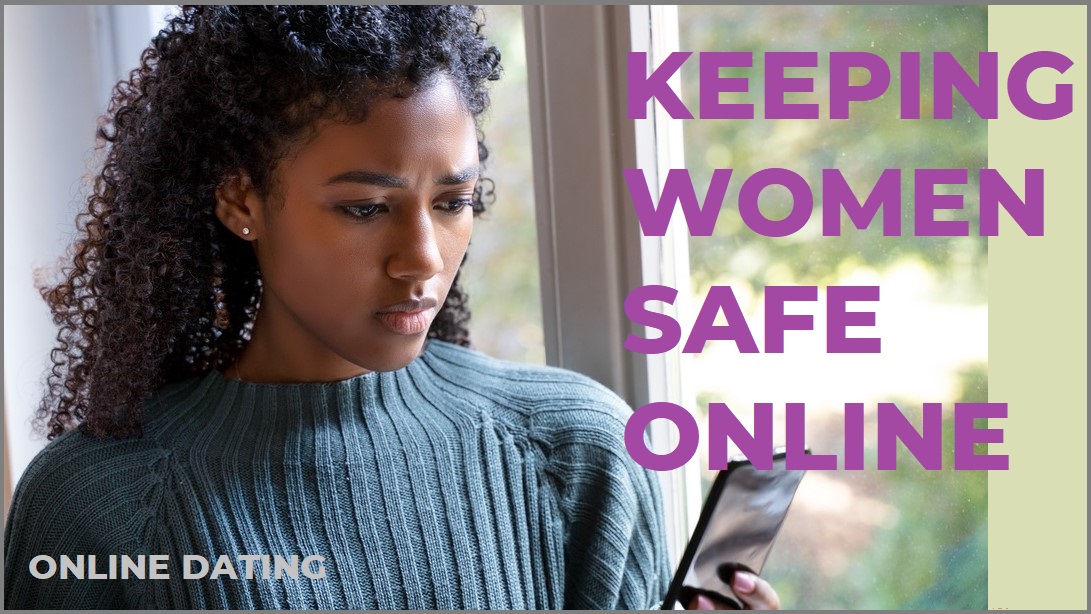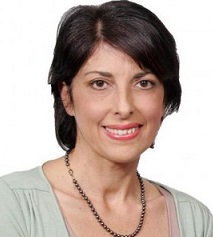Keeping Women Safe Online is a three-part series examining the dangers women face online. Here in Part 2, we look at what dating sites are doing to keep women safe, and the upcoming technologies that could cause more harm.
As online abuse continues to rise, eSafety Commissioner Julie Inman Grant has been calling for more action to keep women safe.
With the next digital evolution, the commissioner is concerned that new and emerging technologies, such as generative artificial intelligence and immersive tech, may be weaponised to cause further harm to women and girls in ways that are both more visceral, but also more difficult to detect.
Commissioner Grant and her department have been engaged with dating sites for several years to develop a ‘safety by design’ approach to deter misuse, as well as anticipate the harms occurring on their platforms.
“The dating sites know they need to do a better job of holding perpetrators to account and do more to prevent recidivism, and banning those whose abusive behaviours create new accounts and continue to abuse others,” said Grant.
“Companies need to be more transparent by outlining the number and nature of reported abuses occurring on their platforms, and also demonstrate the effectiveness of tools they have in place to prevent abuse.”
Study reveals increase in online activity
A 2022 study of dating apps has revealed high rates of sexual violence, stalking, assault and unwanted sharing of explicit images.
The Australian Institute of Criminology survey of 9,987 app users found three-quarters were victims of some form of online sexual violence in the past five years.
One-third experienced in-person abuse from someone they met on an app.
The study said dating apps should implement easier reporting processes, tougher ID verification and censorship of explicit images.
More women needed on design teams
Senior lecturer, innovative interactive technologies at RMIT, Dr Dana Mckay wants to see more women designing apps for their protection.
“When you have a vast majority of people designing these apps that are straight white men, then you’ll end up with an app that works for them, but not so great for everyone else.
“Typically, these men aren’t necessarily the target who are stalked or harassed on dating apps.”
Dr Mckay says while a lot of companies are doing more to include women in the development pathway; they’re still falling short on hiring female programmers.
She adds, one simple way dating apps can help keep women safe is to include a share location app with someone trusted.
“Sure, there’s plenty of information out there on how women can stay safe. Why not have shared location functionality built in? When I use an Uber now, I have this built into my ride.
“Similarly, this can be set up to message someone that you’re on a date. It’s quite simple, an alert sounds off that you’re going on a first date and whether you’d like to message a friend?”
Another idea that could potentially help, is the use of large language models (LLM), such as ChatGPT.
“This can potentially be used to block some of the abusive material that occurs on these sites. As LLM become more sophisticated, they’ll be much better at detecting abusive language or unsolicited images, such as nude photos.”
ID and background checks
Dr Rachael Burgin, lecturer of criminology at Swinburne Law School, understands the need for dating apps to implement robust verification systems and criminal checks but adds caution needs to be considered when collecting data.
“While it’s easy for perpetrators to use dating apps to hunt for victims, I don’t support that everybody be subjected to background checks.
“Yes, there is danger online, but online dating is not necessarily any more dangerous than say, meeting someone in a bar.”
Dr Burgin said there is an assumption that the internet is seen as the boogey man.
“We know that people use these platforms to commit offences. The anonymity that can be provided by the internet doesn’t do enough to stop crime from happening.
“It’s a complex area – we need to be cautious on the notion of collecting data.
“In the context of a significant data leakage, this presents other safety risks, particularly for people who are experiencing violence.
“If someone shares information publicly, and data is leaked, it’s uncertain where their information ends up and this could leave them vulnerable.”
In terms of solutions, the focus should be placed on the potential that dating app provides for its members.
“Many people use dating apps. We have an opportunity to engage attitudinal and behavioural change through these apps.
“Pushing them to provide data will erode trust and may stop some using apps.
“This is an opportunity to engage with tech platforms and app companies to address violence before it occurs by changing attitudes.”
She adds that Australia now has a robust national plan towards ending violence within a generation.
In early, 2023 the government held a summit into the security measures used by the dating platforms.
Dr Burgin attended the round table talks. The result was an online safety grant program funded by the Australian Government as part of its commitment to keeping communities safe online.
“It’s still early days. What’s exciting in the Australian context is the investment at federal government level and a community being driven to change.”
“If we simply shut off abusers or potential abusers from accessing dating apps, they will use other methods or platforms to find victims.
“Importantly, most people who use violence on dating apps, don’t have a criminal record, or civil matters against them.
“We need to think creatively about how we change attitudes.”
Lastly, Burgin explains the impact of dominance and power.
“People who think women are inferior are more likely to support the use of violence against women, similarly for LGBT and trans communities.
“As long as we allow attitudes of misogyny and sexism in the halls of government or power, we have no hope.”
“Violence is about power and domination and the exercise of that power. Unless we address this in balance in our community, violence will continue.”
Dating sites move toward safety online
Match Group, one of the largest operators of the global portfolio of popular online dating services including Tinder, Match.com, Meetic, OkCupid, Hinge, PlentyOfFish, has started to roll out several safety product features.
One product, an anti-harassment prompt called ‘Are You Sure?’ prompts a user to think twice before sending a message if potential harmful language is detected.
A Match Group spokesperson said the group’s approach to safety is centred around preventing and disrupting the actions and behaviours of bad persons both online and IRL.
“We have rolled out features such as anti-harassment prompts to help prevent harmful language on the app and created a robust reporting structure so our teams can help hold users accountable by banning them across our portfolio.”
Other safety features include: photo verification, a safety centre that includes local resources, articles, and information about safety and privacy features and reporting, where a member contacts us to report concern.
What to do if you become a target
The following information provided by eSafety:
• If you are a target of online abuse, it’s important to collect evidence before blocking or deleting any content or accounts. Take screenshots of the abusive messages, posts or comments, and record the webpage addresses. It’s also a good idea to store them in a file so you don’t keep seeing them.
• Once this is done, report the abuse to the service or platform used to send, post or share it. Companies have a responsibility to enforce their terms of service.
• Once reported, use the in-app functions to ignore, mute or block the other person or account.
• If the service or platform does not help you, you can report it to the eSafety Commissioner at eSafety.gov.au/report. eSafety will help to have it removed if it meets the legal definition of adult cyber abuse.
• If someone is threatening you or your family’s safety, call the police.
• Online abuse can take a significant toll on your emotional wellbeing. Counselling support is strongly encouraged if you’re struggling because of online abuse. eSafety can connect you with an experienced counsellor for support if you make a complaint about adult cyber abuse.
Also published in this series: Part 1 – Keeping Women Safe Online: Beware stalkerware
For 24/7 family and domestic violence counselling support, call 1800 RESPECT (1800 737 732).
For online dating advice, visit: eSafety.gov.au/women/being-social/online-dating
To report serious online abuse, visit: eSafety.gov.au/report










